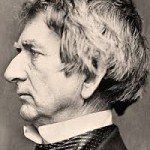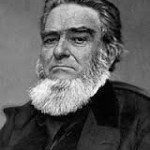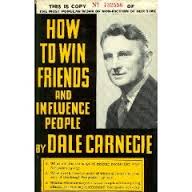“You, who are on the road, must have a code, that you can live by;
And so become yourself, because the past is just a good bye.”
— Crosby, Stills, Nash & Young
We all operate our lives by a “code of conduct,” yet we generally never put pen to paper and jot down our code. Our code operates behind the scenes, in our subconscious mind, guiding our every action.
The same held true with Abraham Lincoln, who never spoke of affirmations, or a code of conduct, but like our own, they were imprinted in the recesses of his mind.
In my attempt to distill the essence of who Lincoln was, I examined extensive observations of Lincoln by his family, friends, and acquaintances. From these “historical snapshots,” I unearthed the preeminent notions that rattled around inside of Lincoln’s head. The compass if you will, that directed him on his “hero’s journey,” all the way from his modest beginnings in rural Kentucky to the White House.
Here then, are the affirmations that Lincoln utilized in every situation, and with each person he met.
For each affirmation, I cite quotes from Lincoln’s contemporaries, or from Lincoln himself, to elucidate the idea.
Channel Your Inner Abe Lincoln
1) Always greet everyone, no matter what they look like
“He greeted me cordially as though we had known each other for a long time. There was no strangeness about him. He knew men on the instant.” William O. Stoddard, journalist.
“He approached, extended his hand, and gave mine a grasp such as only a warm-hearted man knows how to give.” New York journalist.
“Mr. Lincoln shook hands with me in his kindly way, and the direct simplicity and naturalness of his bearing were then and still remain the exact impression upon me of his daily manner. There was a natural courtesy and real interest shown toward me.” Charles Zane, law student
2) Be prepared with a “quip of the day”
“No matter how busy or how deeply engrossed in his work Me. Lincoln might be, whenever anyone came in he would greet him with a pleasant or humorous remark, and before he left would inevitably tell a joke or anecdote. Sometimes he told the same story to four or five different person.” John H. Littlefield, law clerk, Lincoln-Herndon Law office
“If a friend met or passed Lincoln (on the streets of Springfield), something would remind him of a story, and tell it he would.” William Herndon, Herndon’s Life of Lincoln
“In the midst of the most stirring and exciting — nay, death-giving — news, Mr. Lincoln has always a story to tell.” Adam Gurowski, State Department
“Mr. Lincoln’s wit and mirth will give him a passport to the thoughts and hearts of millions.” George Goutwell, Secretary of Treasury.
3) Employ an affable persona – be gentle, kind and courteous
“He was liked by every person who knew him. He made himself useful in every way  that he could. If the water-bucket was empty he filled it; if wood was needed he chopped it; he was always cheerful and in a good humor.” Caleb Carman, New Salem resident
that he could. If the water-bucket was empty he filled it; if wood was needed he chopped it; he was always cheerful and in a good humor.” Caleb Carman, New Salem resident
“Mr. Lincoln quickly gained the confidence of strangers, and, if they were much with him, their affection as well. I found myself strongly drawn to him from the first, and this feeling remains to me now. He had genuine kindness of heart.” Horace White, journalist
“There was such a blend of dignity and gentleness in his (Lincoln’s) voice and words, that there came a degree of relief to the tension of my first impression (of him).” Henry C. Bowen, editor of the New York Independent and organizer of Lincoln’s Cooper Union Speech (from Lincoln at Cooper Union by Harold Holzer).
4) Listen to friends, keep open communication channels
“The better part of one’s life consists of his friendships,” Lincoln letter to Joseph Gillespie, 1849.
“Wherever he moved he found men and women to respect and love him. One man who knew him at that time says that ‘Lincoln had nothing, only plenty of friends.’ ” Josiah G. Holland, author
5) Inner guidance – stay close to the “cave of the winds”
“The name of the man had come to stand for what he was. In the ‘cave of the winds’ where he saw history in the making he was far more a listener than a talker. The high adventure of great poets, inventors, explorers, facing the unknown and the unknowable, was in his face and breath, and had come to be known, to a few, for the danger and bronze of it.” Carl Sandburg, Abraham Lincoln
“In traveling on the circuit, he was in the habit of rising earlier than his brothers of the bar. On such occasions he was wont to sit by the fire, having uncovered the coals, and muse, and ponder, and soliloquized, inspired no doubt by that strange psychological influence which is so poetically described by Poe in ‘The Raven.’ ” Lawrence Weldon, lawyer
“A dreamer is one who can only find his way by moonlight, and his punishment is that he sees the dawn before the rest of the world.” Oscar Wilde
6) Note your own flaws, share them with others
“Self-deprecating humor came naturally to Lincoln; once after being called ‘two-faced,’ he quipped, ‘If I had two faces, why would I be wearing this one?’ ” Francis B. Carpenter, portrait painter, 1865
“While riding a train, I was once accosted … by a stranger, who said, ‘Excuse me, sir, but I have an article in my possession which rightfully belongs to you.’ ‘How is that?’ I asked, considerably astonished. The stranger took a jackknife from his pocket. ‘This knife,’ said he, ‘was placed in my hands some years ago with the injunction that I was to keep it until I found a man uglier than myself. I have carried it from that time to this. Allow me now to say, sir that I think you are fairly entitled to the property.’ ” Abraham Lincoln, as told to Francis B. Carpenter, portrait painter, 1865
7) Constantly improve – push the envelope of your comfort zone
“The way for a man to rise is to improve himself in every way he can.” Abraham
Lincoln
“Things may come to those who wait, but only the things left by those who hustle.”
Abraham Lincoln
8) Offer to help others who cannot return the favor
Ab Trout, a poor barefooted boy, was chopping wood one cold winter day. Lincoln  came up and asked what he got for the job, and what he would do for the money. Ab said, “One dollar” and pointing to his naked feet said, “A pair of shoes.” Abe told him to go in and warm up and he would chop a while for him. Lincoln finished the work, and told him to go buy the shoes. William Herndon, Herndon’s Informant’s
came up and asked what he got for the job, and what he would do for the money. Ab said, “One dollar” and pointing to his naked feet said, “A pair of shoes.” Abe told him to go in and warm up and he would chop a while for him. Lincoln finished the work, and told him to go buy the shoes. William Herndon, Herndon’s Informant’s
Lincoln defended the son of the widow Armstrong, in a murder case. Lincoln saved her boy from the gallows. The only possession she had in the world was 40 acres of land, which she offered to give to Lincoln as payment. “Aunt Hannah,” he said, “you took me in years ago when I was poor and homeless and you fed me and mended my clothes, and I shan’t charge you a cent now.” Andrew Carnegie, Lincoln – The Unknown
“Lincoln chopped wood for widows and orphans. When he saw travelers bogged down, he stopped to help them.” Michael Burlingame, Abraham Lincoln: A Life
9) Look for the big picture
“We should be too big to take offense and too noble to give it.” Abraham Lincoln.
“Let us have faith that right makes might, and in that faith, let us, to the end, dare to do our duty as we understand it.” Abraham Lincoln, Cooper Institute Address, 1860
“I am not bound to win, but I am bound to be true. I am not bound to succeed, but I am bound to live up to what light I have.” Abraham Lincoln, 1854.
“Whenever I hear anyone arguing for slavery I feel a strong impulse to see it tried on him personally.” Abraham Lincoln, Speech to 140th Indiana Volunteers, 1865
“As I would not be a slave, so I would not be a master. This expresses my idea of democracy. Whatever differs from this, to the extent of the difference, is no democracy.” Abraham Lincoln, 1858
10) Nourish humor and tell stories, so people say, “I felt like I had known him my whole life and we had long been friends.”
“In ten minutes I felt as if I had known him all my life. He had the most wonderful faculty I have ever seen in a man to make one feel at ease.” Rufus Rockwell Wilson, Intimate Memories of Lincoln
“He talked in so simple and familiar a strain, and his manner and homely phrase were so absolutely free from any semblance of self-consciousness or pretension to superiority, that I soon felt as if I had known him all my life and we had long been close friends. He interspersed our conversation with all sorts of quaint stories, each of which had a witty point applicable to the subject in hand.” Carl Schurz, Union General
“From the first moment of my interview with him I seemed to myself to have been acquainted with him for years. For while he was among the most solid of men I ever met he was among the most transparent.” Frederick Douglass, author and orator.
“I really think that Mr. Lincoln’s propensity for story-telling has been exaggerated by his enemies. I had once the honor of conversing with him, or rather of hearing him converse, for several minutes, and in all that time he only told four little stories.” Sarah Jane Lippincott, author
Lincoln Affirmation Card

Upcoming Presentations:
November 30, 2016. “Uncommon Friendliness: Abraham Lincoln’s Miraculous Formula to Squeeze Every Drop of Inspiration and Illumination Out of Each Day.” Breadkfast Lions Club. Radisson Inn. Tucson, AZ.
Related Posts:
Yard Sales, Heroic Cats and Zombies
Overcome obstacles and doubts by doing more than anyone expected
Give yourself permission to feel frustration, then relax and let it go #tmoy #storytelling
A feather is better than a hammer to win an argument #tmoy #storytelling
Don’t let pride stand in the way a brighter future
Use warm memories to replace negative thoughts
A Light Heart Lives Long #EurekaMoments 6
Act Out Characters to Make a Story Sizzle (video)
Turn frustration into creative energy #LifeLesson 7
Disarm Hostility with Friendliness #LifeLesson 8
You Only Live Twice – Life Provides Second Chances LL #9
Donald Trump vs. Abe Lincoln – #LifeLesson10
Failures Can Be Transformed into Strength – #LifeLesson 11
Is it better to remain silent, or to speak up and confirm you’re an idiot? LifeLesson #12
Convert Affliction to Anecdote – Utilizing the Stories from Your Hero’s Journey
Virtue Is Its Own Reward
Boldness had Genius, Power and Magic In It
Emulate Abraham Lincoln: Make Each Day Count
Be a Generous Listener, as Abe Lincoln Was
——————









